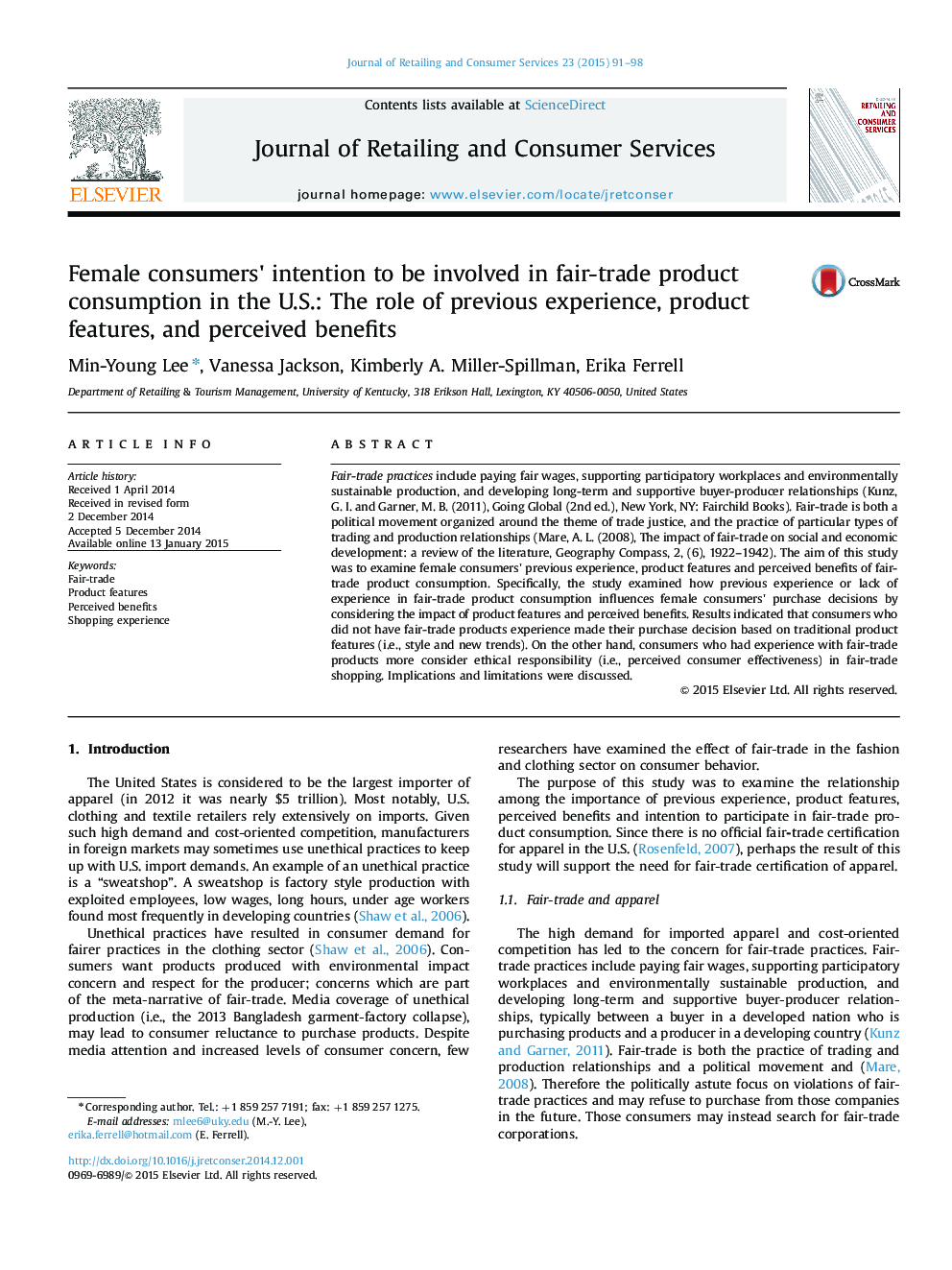| Article ID | Journal | Published Year | Pages | File Type |
|---|---|---|---|---|
| 1028983 | Journal of Retailing and Consumer Services | 2015 | 8 Pages |
•The aim of this study was to examine female consumers׳ previous experience, product features and perceived benefits of fair-trade product consumption.•Specifically, the study examined how previous experience or lack of experience in fair-trade product consumption influences female consumers׳ purchase decisions by considering the impact of product features and perceived benefits.•Results indicated that consumers who did not have fair-trade products experience made their purchase decision based on traditional product features (i.e., style and new trends).•Consumers who had experience with fair-trade products more consider ethical responsibility (i.e., perceived consumer effectiveness) in fair-trade shopping.
Fair-trade practices include paying fair wages, supporting participatory workplaces and environmentally sustainable production, and developing long-term and supportive buyer-producer relationships (Kunz, G. I. and Garner, M. B. (2011), Going Global (2nd ed.), New York, NY: Fairchild Books). Fair-trade is both a political movement organized around the theme of trade justice, and the practice of particular types of trading and production relationships (Mare, A. L. (2008), The impact of fair-trade on social and economic development: a review of the literature, Geography Compass, 2, (6), 1922–1942). The aim of this study was to examine female consumers׳ previous experience, product features and perceived benefits of fair-trade product consumption. Specifically, the study examined how previous experience or lack of experience in fair-trade product consumption influences female consumers׳ purchase decisions by considering the impact of product features and perceived benefits. Results indicated that consumers who did not have fair-trade products experience made their purchase decision based on traditional product features (i.e., style and new trends). On the other hand, consumers who had experience with fair-trade products more consider ethical responsibility (i.e., perceived consumer effectiveness) in fair-trade shopping. Implications and limitations were discussed.
